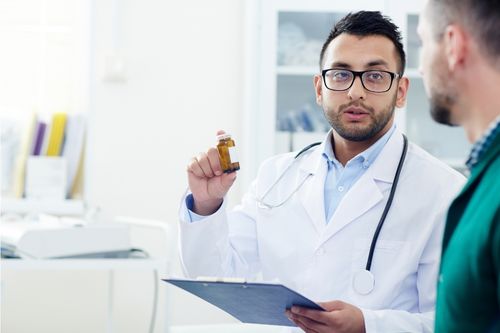Table of Contents
- Pharmacovigilance jobs provide better career prospects
- Requirements for pharmacovigilance jobs
- Given below is the list of top pharmacovigilance jobs
- Medical information associate
- Medical writer
- Pharmacovigilance associate
- Pharmacovigilance physician
- Pharmacovigilance jobs as a project manager
- Key takeaways
- FAQs
Pharmacovigilance jobs provide better career prospects
Pharmacovigilance jobs are an excellent career path for life sciences and pharmacy graduates. You will be a part of a profession committed to rewarding talent and offering continuing professional development that attracts and retains the best in the industry. As a pharmacovigilance professional, you will be part of a global team dedicated to improving people’s health worldwide.
Requirements for pharmacovigilance jobs
- There are two primary responsibilities in this field: analyzing and identifying the risks of various medications and preventing patients from receiving incorrect medications.
- In short, pharmacovigilance professionals are responsible for collecting adverse data on companies’ products, analyzing the data, and recommending changes and warnings in labeling or clinical trial protocols.
- A degree in Life Science is required to work in pharmacovigilance. They must be familiar with medical terminology, pharmaceuticals, and nursing.
- To succeed in the field, one must have information management, communication, foreign language skills, and ethical, legal, and regulatory knowledge.
Given below is the list of top pharmacovigilance jobs

Medical information associate
Key responsibilities
- To handle medical information inquiries in English and, ideally, one other language in which you are fluent.
- To assume responsibility for translational activities in your other fluent language, where applicable and requested by the client.
- Respond to medical inquiries from external customers such as healthcare professionals and patients, and assist pharmaceutical clients’ internal departments with queries as needed.
- As appropriate, prepare responses to inquiries based on literature research and collaboration with physicians internally and with pharmaceutical client internal departments.
Educational qualification
- A bachelor’s degree in life sciences
- Experience in customer service.
- Advanced knowledge of English and one other language, as well as MS Word and Excel
- Excellent detail-oriented and organizational abilities
- Ability to solve problems and make decisions on your own
- Critical thinking and process orientation
- Responsible approach to work
Medical writer
Key responsibilities
- Authoring, editing, and reviewing various regulatory/clinical documents (e.g., aggregate reports, risk management plans, and other documents required throughout the product’s life cycle) on an independent basis, with responsibility for the document’s quality and content, as well as compliance with internal and external standards.
- Active participation in medical writing training and development, implementation, and quality maintenance of system documents, including internal templates and formats required for standardized documentation.
- Assistance with all pharmacovigilance operations related to medical writing.
- Continuous self-education in all aspects of medical writing is required.
Educational qualifications
- Previous pharmacovigilance medical writing experience, including PBRERs, DSURs, and RMPs writing Life Science degree or equivalent nursing or medical qualifications
- Ability to manage multiple tasks and prioritize workload while paying close attention to detail and practical training and mentoring associate medical writers.
- English proficiency is required.
Pharmacovigilance associate
Key responsibilities
- As part of a project team, the Pharmacovigilance Associate performs and supports contracted pharmacovigilance activities on behalf of clients.
- This position is ideal for motivated and dynamic candidates interested in expanding their knowledge of pharmacovigilance.
Educational qualifications
- A biomedical degree (Pharmacy, Medicine, Biology, Chemical Engineering, etc.) or relevant work experience is required.
- A thorough understanding of pharmacovigilance.
- Fluency in English(written and oral)
- MS Office proficiency is required (Word, PowerPoint, Excel)
- Outstanding interpersonal, verbal, and written communication abilities
- Capability to plan, organize, prioritize, and carry out multiple tasks within the constraints of assigned objectives
- Ability to work effectively in an international matrix team and recognize the value of collaboration
Pharmacovigilance physician

Key Responsibilities
- Reviewing and providing medical opinions on various reports derived from the literature
- Examining references in the literature for signal detection and aggregate reports
- Making medical remarks
- Contributing to the development of search strategies
Educational qualification
- Medical university diploma (Doctor of Medicine)
- Advanced level of English C1
- IT expertise (MS Office)
- Basic understanding of scientific literature retrieval and valuation (mainly using PubMed and EMBASE)
- Individuals who are eager to learn and contribute to patient safety
- Excellent organizational and detail-oriented skills.
- Excellent interpersonal and communication skills
Pharmacovigilance jobs as a project manager
Key Responsibilities
- Develop the project scope and objectives following the signed agreement between the client and the company they represent.
- Management of client expectations to ensure that the client is satisfied with services and that the work delivered meets if not exceeds, the client’s expectations.
- Serving as the primary point of contact for the client and staff regarding project-related issues.
- Planning project activities
- Coordination of colleagues involved in a project.
- Budget management, including the preparation of monthly reports.
Educational qualification
- Proven track record of managing pharmacovigilance projects, including client and budget management.
- Graduate in Life Sciences or Health Care
- Be at ease communicating at the highest levels of pharmaceutical organizations.
- Strong leadership qualities include planning, mentoring, meeting facilitation, communication, and problem-solving abilities.
- ARISg, Microsoft Excel, Visio, and project knowledge is preferred.
- Experience working in a service provider environment is preferred.
Key takeaways
- Pharmacovigilance is a means to detect, assess, comprehend, and prevent medication’s adverse long-term and short-term side effects.
- The two primary responsibilities of this field are analyzing and identifying the risks of medications and preventing patients from receiving incorrect medications.
- One can acquire a job as a pharmacovigilance associate, physician, and medical writer with a medical university diploma.
Did you find this blog informative? If so, please share your thoughts in the comments section below. Click here to contact us for more information on pharmacovigilance jobs. We would be happy to assist you with your queries.
Liked this blog? Read next: Top 12 MSc in Chemistry jobs
FAQs
Q1. Is pharmacovigilance a tough job?
Ans- Expectation from pharmacovigilance associates and testers is that they should make assessments or provide correct output in the software vision where data is collected from CRO and CRA team members; it is a difficult task for every associate who works in drug safety.
Q2. Is drug safety and pharmacovigilance the same?
Ans- The World Health Organization defines pharmacovigilance, also known as drug safety, as the science and activities relating to detecting, understanding, and preventing adverse effects or other drug-related problems.
Q3. What are the departments in pharmacovigilance?
Ans- Although it is a separate discipline now, pharmacovigilance is linked to several scientific disciplines, the most important of which are clinical medicine, clinical and pre-clinical pharmacology, immunology, toxicology, and epidemiology.







